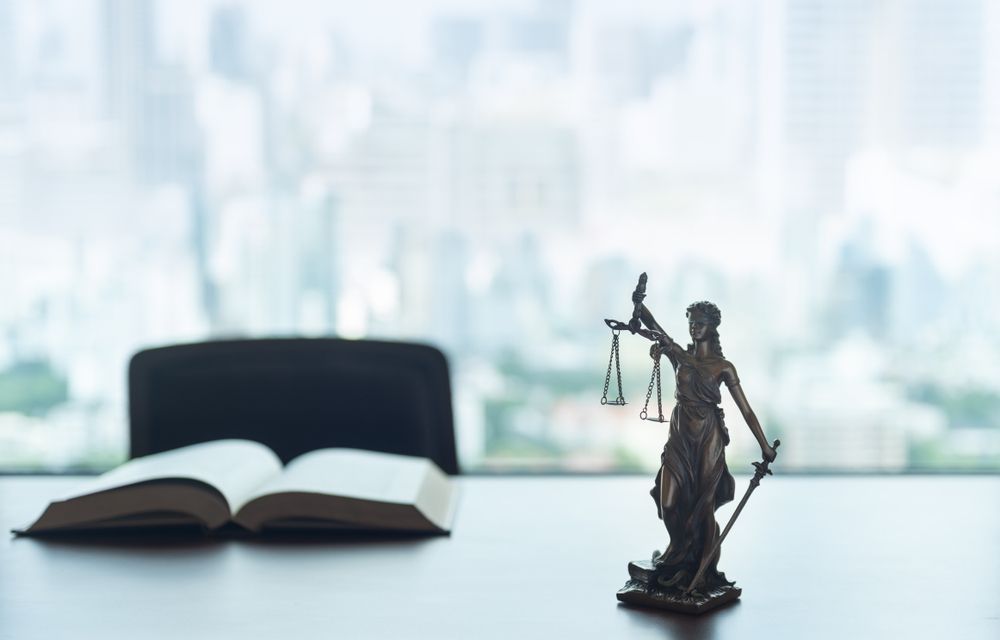Secure Transparent Pricing When Hiring a Lawyer in Atlanta
After a car accident, most victims encounter an unpleasant situation on top of physical injuries and property damage. They've also lost their ability to work for a time, sometimes for months. This makes many car accident victims wary of hiring an attorney to help them file a compensation claim. They don't think they can afford it. But they would be wrong. Most accident lawyers in Atlanta work on a contingency basis, meaning if they don't win, you don't pay. However, some lawyers will add fees for peripheral costs, such as hiring expert witnesses. Before you hire an attorney, ask pertinent questions about fees to avoid unnecessary stress.
In today's legal environment, understanding the pricing of legal services is paramount, especially when it comes to handling sensitive issues like car accident claims. Clients involved in car accidents often face the additional burden of hidden costs and unexpected fees that can significantly impact their overall financial recovery. This article provides a comprehensive look at transparent pricing in Atlanta car accident claims, drawing insights that are also central to the work of a car accident attorney in Atlanta. It explains fee structures, hidden costs, alternative payment models, and tips for comparing pricing among Atlanta attorneys. The discussion is anchored in the importance of clear communication and cost clarity, which builds trust and leads to better outcomes for clients who are seeking compensation for personal injury claims, property damage, and other car accident expenses.
The piece also delves into peer-reviewed studies. It presents detailed lists and tables that break down complex fee concepts in simple terms, so clients fully understand what they're paying for when hiring a car accident lawyer. Ultimately, understanding transparent pricing not only mitigates the risk of unexpected costs but also empowers clients to negotiate final settlements and avoid financial pitfalls related to legal representation.
With a focus on fault, pain and suffering, retainer agreements, and comparative negligence, this article offers actionable insights for clients entering the legal process after a traffic collision or auto accident. It emphasizes the duty of care expected from attorneys and clarifies how hidden fees, such as administrative charges, court fees, and contingency fee traps, can affect the final verdict and settlement amount. Furthermore, the article uses real-world data from reputable sources and case studies to illustrate each point. Let us now explore how transparent pricing can be achieved and maintained in legal services related to car accident cases in Atlanta.
Understanding Transparent Pricing in Atlanta Car Accident Claims
Transparent pricing in legal services is defined by clear, upfront disclosure of all costs before any work begins. In the context of Atlanta car accident claims, transparent pricing helps clients know exactly what they will be charged during the legal process. This requires law firms to detail their fee structures in a written retainer agreement that includes information about hourly rates, contingency fees, flat fees, and any potential additional expenses that are not covered by the initial contract. Defining transparent pricing means that both the client and the attorney have aligned expectations from the outset, reducing the chances of disputes later on.
Defining Transparent Pricing in Legal Services
The first step in achieving transparent pricing is to define the meaning of each fee component. Legal services often involve different billing methods: some attorneys charge by the hour, while others work on a contingency fee basis, where payment is only made if the case is successful. Transparent pricing means breaking down these components and explaining them in simple terms. For example, a lawyer might charge 33% of the settlement amount on a contingency basis. A retainer agreement should detail any costs associated with filing fees, administrative tasks, and even travel. This level of definition leaves no room for ambiguity and makes it easier for clients to understand the cost of pursuing their legal claim.
Key Benefits of Price Clarity for Clients
Clear pricing offers multiple benefits for those who need legal assistance. First, it enables clients to make informed decisions about engaging in a legal battle, understanding exactly what financial risk they are undertaking. Second, adherence to transparent pricing helps build trust between the client and the attorney. When clients see that their lawyer is upfront about costs, they feel more comfortable and empowered during what is often a stressful time. Moreover, clients can budget accordingly, reducing anxiety related to unexpected financial burdens. Transparent pricing also facilitates a competitive edge among law firms, encouraging them to operate with integrity while demonstrating the value of their service offerings.
Impact on Trust and Communication With Your Lawyer
Establishing trust and effective communication is critical in legal representation, especially when dealing with car accident cases that involve significant financial claims. When attorneys provide clear fee structures and detailed billing practices, they build trust with their clients. This openness means that discussions around cost do not become stumbling blocks during litigation or settlements. Effective communication regarding costs often leads to better client satisfaction and improved outcomes in settlement negotiations or court trials. For instance, when clients are aware of every dollar being charged, they are less likely to doubt the attorney’s integrity or assume that the lawyer is hiding fees. Such trust strengthens the lawyer-client relationship and contributes to a smoother legal process.
Key Takeaways:
- Transparent pricing involves clear, upfront disclosure of all fee components and ancillary charges.
- Detailed definitions of billing methods promote informed decision-making and trust-building between clients and attorneys.
- Effective communication means clients face fewer financial surprises and can better manage settlement negotiations.
Recognizing Fee Structures and Payment Models
In the realm of car accident legal representation, understanding the different fee structures and payment models is essential. This section delves into the common pricing models in Atlanta legal services, explaining their advantages and how they affect clients' financial commitments. The fee structures often include contingency fees, hourly arrangements, fixed fee options, and retainers. Each of these models has a distinct impact on the overall legal expenses incurred during and after a case. For clients seeking legal relief in personal injury claims or auto accident cases, grasping these models can significantly influence their choice of attorney and ultimately the outcome of their case.
Overview of Contingency and Hourly Arrangements
Contingency fee arrangements are popular in car accident cases. Under such agreements, the lawyer's fee is calculated as a percentage of the final settlement or trial verdict. This model is advantageous for clients who may not have the means to pay hourly fees upfront, as payment is contingent upon a successful outcome. However, contingency fees vary, and clients must carefully review and negotiate the percentage, which typically ranges from 25% to 40%. In contrast, hourly billing charges clients for each hour the attorney works on their case. Hourly arrangements provide more precise control over legal expenses but can become expensive if the case becomes complicated or prolonged. The transparency in both models is imperative; clients should know if any additional costs, such as deposit requirements or supplemental fees, will be incurred.
Fixed Fee and Retainer Options in Atlanta
Besides contingency and hourly fees, clients may encounter fixed fees or retainer-based pricing models. A fixed fee is an agreed-upon amount paid in full regardless of the time spent on a case, and it is often used in more predictable legal tasks where the scope is clearly defined. This can include services like drafting documents or handling particular parts of a claim. Retainer agreements, on the other hand, involve an upfront payment that serves as a deposit for future services. The attorney then bills against this retainer as work is completed. In Atlanta, many law firms offer a blend of these payment models. Understanding the pros and cons of each option helps clients negotiate better deals and means cost disclosures remain transparent. For instance, a client might prefer a flat fee for routine services and a contingency fee for the unpredictable aspects of a trial. Such mixed approaches require careful documentation and frequent communication regarding outstanding balances.
How Different Models Affect Legal Expenses
The chosen payment model can significantly impact the overall legal expense. Under a contingency fee, while there is no upfront cost, the percentage charged may be higher if the case settles quickly compared to one that goes to trial. Conversely, hourly fees might seem controllable at the outset but can escalate if the attorney spends significant time on research, depositions, and court appearances. Fixed fees can provide a budget-friendly option, but may not cover unforeseen complications during litigation. Each model has different implications for client satisfaction and the financial risk borne by the client. For example, the complexity of a car accident case might warrant a contingency fee so a lawyer remains motivated to secure a favorable outcome without the client shouldering excessive upfront costs. Therefore, clients need to weigh the potential total expense, not just the immediate out-of-pocket payment, when reviewing fee structures. Legal services that explain how bills are calculated will typically build more confidence and lead to better long-term relationships.
Key Takeaways:
- Contingency fee and hourly models each have distinct advantages and potential drawbacks.
- Fixed fee and retainer models offer predictable costs but may not cover all unforeseen services.
- Understanding how each payment model affects overall legal expenses helps clients choose the right attorney and negotiate clearer agreements.
Spotting Hidden Costs in Car Accident Legal Representation
While transparent pricing aims to eliminate surprises, hidden costs can still creep into car accident legal representation. These hidden charges can arise from court filing fees, administrative costs, or miscellaneous expenses that were not clearly outlined in the initial agreement. The challenge for clients is to recognize these potential pitfalls early in the process. Without clarity, unexpected charges can significantly increase the client's financial burden, turning what appeared to be a straightforward retainer agreement into a costly legal ordeal. Thus, looking for indicators of extra charges from the beginning is essential.
Identifying Common Extra Charges in Attorney Agreements
Hidden costs in attorney agreements may include fees related to court filings, administrative work, document production, and even technology surcharges. For instance, an attorney might charge additional fees for copying, mailing, or obtaining expert testimony, costs that were not included in the primary rate. Additionally, some firms might impose travel expenses or fee increments for late-night court appearances. It is critical for clients to closely examine every line item in the contract. Detailed invoices should break down each charge, offering a clear explanation for why the cost is incurred. When such details are lacking, it's a red flag indicating that the attorney may not be entirely transparent about potential costs. Confirming that the retainer agreement addresses these potential extras avoids surprises down the line and contributes to a more equitable attorney-client relationship.
Assessing Administrative and Court-Related Fees
Administrative fees are another layer of hidden expenses that clients might face. These fees can cover the cost of preparing essential legal documents, submission of pleadings, and even specialized software used by the law firm to manage documents. Clients should inquire about whether these administrative expenses are built into the quoted fee or billed separately. Court-related fees, such as deposition costs, expert witness fees, and photocopying evidence, also pose significant financial risks if not disclosed in advance. Sometimes, even the cost of scheduling and rescheduling court dates can add up. Before signing any agreement, clients should request a complete list of possible administrative and court fees. Understanding these additional charges empowers clients to budget more accurately and discourages surprise expenses during the legal proceedings.
Indicators of Potential Unexpected Expenses
Several indicators can point to the likelihood of hidden fees, and clients should be aware of these warnings. First, any reluctance from the attorney to provide a detailed written estimate should be considered a red flag. Secondly, if the initial consultation does not include a breakdown of how costs will be handled, it is advisable to request more detailed information. Moreover, a fee structure that is overly vague or filled with legal jargon without clear explanations may be another sign that hidden charges are on the horizon. In addition, clients should be cautious if subsequent billing statements seem to include charges that were not previously discussed. Frequent changes in billing format or invoices that consistently exceed initial estimates are further warning signs. By recognizing these indicators early, clients can seek clarification and avoid future disputes over unexpected expenses.
Key Takeaways:
- Hidden costs may include administrative fees, court-related expenses, and travel costs that are not outlined in the initial retainer agreement.
- Detailed invoices and clear fee breakdowns are critical in identifying extra charges.
- Recognizing indicators of unexpected expenses, such as vague billing practices and insufficient cost disclosures, helps clients avoid financial surprises during their legal representation.
Analyzing Contingency Fees and Alternative Arrangements
Contingency fee arrangements are a popular payment model for car accident cases, but they can sometimes mask additional costs that significantly affect the final compensation received by the client. Analyzing these fees requires a detailed look at the percentages, the potential hidden traps, and the benefits of alternative payment structures. Since many clients rely on contingency fee arrangements precisely because they lack the upfront funds for hourly billing, transparency in this model is crucial so all parties are fairly treated.
Percentage Rates and Their Implications
In most car accident cases, attorneys operating on a contingency fee basis charge a percentage of the final settlement or award. While it is common to see percentages ranging from 25% to 40%, the actual rate may vary based on factors such as case complexity, expected trial duration, and regional market norms. A higher percentage rate means the client will ultimately receive a lower net compensation after resolving the case. It is essential for clients to understand that the percentage not only covers the attorney’s work but might also include allocations for any administrative fees or promises to cover litigation costs upfront. Clients should ask for documented explanations of how the percentage is calculated and request scenarios that outline what happens in both favorable and unfavorable outcomes. This confirms the lawyer’s fee aligns with the service quality and that hidden costs do not diminish the overall benefit of the legal representation.
Hidden Expense Traps Within Contingency Agreements
Even within seemingly straightforward contingency fee agreements, hidden expense traps may exist. For example, some law firms include clauses that allow them to deduct additional costs not initially highlighted, such as fees for expert testimony, deposition transcripts, or extensive research expenditures. These traps can significantly erode the client's recovery, especially when the additional expenses are substantial. These hidden costs can reduce the effective percentage of the compensation received. To avoid falling into these expense traps, clients must insist on a fully itemized fee agreement that details every potential cost and clarifies which fees might be recovered from the client after the case is concluded. Being proactive about these details means there are no surprises at the final billing stage, which is critical in maintaining the integrity of the contingency arrangement.
Evaluating Alternative Payment Structures for Clarity
Alternative payment structures, such as fixed fees or hybrid models that combine contingency with a capped hourly rate, offer additional clarity and predictability for clients. Fixed fee agreements eliminate the variability inherent in contingency fees by providing one set amount that covers the entirety of the legal service, regardless of case duration. Hybrid models allow clients to benefit from a performance-based structure while avoiding some of the hidden costs associated with pure contingency arrangements. In Atlanta, many law firms are increasingly exploring alternative models to offer better price transparency. Evaluating these options involves comparing past precedents, reviewing client testimonials, and understanding how these payment models affect both short-term cash flow and long-term compensation. Transparent alternative structures often have clear boundaries and detailed clauses that forecast additional expenses if certain triggers are met. This clarity is invaluable for clients who need to balance the immediate costs of legal representation with the long-term benefits of a successful settlement or verdict.
Key Takeaways:
- The percentage fee in a contingency arrangement directly impacts the final compensation received by the client.
- Hidden expense traps in contingency agreements can significantly reduce net recovery if not properly disclosed.
- Alternative payment structures like fixed fees or hybrid models offer clients increased clarity and predictable budgeting when managing legal costs.
Tips for Comparing Transparent Pricing Among Atlanta Attorneys
Choosing the right attorney for a car accident case in Atlanta involves more than just evaluating past successes; it requires a thorough comparison of transparent pricing models among different law firms. This section provides actionable tips for clients to evaluate and compare fee agreements. From asking the right questions during initial consultations to carefully reviewing written fee agreements and considering client reviews and case studies, each step guarantees that the costs of legal representation are fully understood. Comparing prices effectively is not solely about finding the lowest fee; it involves weighing the quality of service and the potential for unexpected expenses against clear pricing structures.
Questions to Ask During Initial Consultations
The initial consultation is a critical opportunity for clients to gather detailed information about a prospective attorney’s fee structure. Key questions should include:
- "Can you provide a full breakdown of your fee structure, including any potential hidden costs?"
- "What is your billing method: contingency, hourly, or fixed fee?"
- "Are there any circumstances under which additional fees might be incurred?"
- "How do you handle administrative costs or court-related expenses?"
- "Can you provide examples or case studies where your pricing model has resulted in favorable financial outcomes for your clients?"
Each question is designed to uncover layers of pricing that might otherwise remain hidden. Be sure to request sample invoices or retainer agreements so that you can review details before signing. A transparency-focused attorney will be forthcoming with this information, and every potential cost will be communicated.
Evaluating Written Fee Agreements Carefully
A written fee agreement is the cornerstone of transparent pricing. Clients should check for clarity, comprehensiveness, and consistency when evaluating such contracts. Each line item should specify the fee, the service provided, and any conditions that could lead to additional charges. Look for provisions regarding billing increments, caps on expenses, and procedures for handling unforeseen expenses. Additionally, clients should confirm a straightforward process for dispute resolution should discrepancies arise in billed amounts. Detailed written agreements protect the client financially and serve as a reference document throughout the litigation process, so both parties remain accountable.
Using Client Reviews and Case Studies for Insights
Client testimonials and case studies often reveal the real-world application of fee agreements and the level of transparency provided by a law firm. Online reviews can offer insights into how the firm handles billing inquiries and whether clients encountered unexpected costs. Look for reviews that mention specific figures regarding fees, dispute resolutions, and overall satisfaction with the transparency of the billing process. Moreover, case studies provided on a law firm’s website can illustrate successful outcomes where fee clarity directly contributed to client satisfaction and successful recoveries. For clients, these reviews and case studies are invaluable in building confidence and making data-driven decisions when selecting legal representation. They also serve to highlight any recurring issues reported by previous clients, helping you avoid partnerships with firms that might hide extra expenses.
Key Takeaways:
- Ask focused questions during initial consultations to uncover detailed fee information.
- Carefully review written fee agreements for clarity and comprehensive cost breakdowns.
- Client reviews and case studies provide practical insights into the real-world transparency of attorney pricing.
Clarifying Cost Responsibilities and Potential Additional Charges
Understanding the full scope of legal costs requires a clear differentiation between lawyer fees and out-of-pocket expenses. In Atlanta car accident cases, where numerous variables, from property damage to personal injury claims, come into play, clarity in cost responsibilities is essential. Clients must know which costs the attorney will cover and which costs they are expected to pay out of pocket. This section explores how to distinguish lawyer fees from other expenses, outlines cost boundaries in legal agreements, and discusses the importance of detailed billing records.
Distinguishing Lawyer Fees From Out-of-Pocket Expenses
The first step in managing overall legal expenses is to distinguish between the attorney’s fees and additional out-of-pocket costs. Lawyer fees include charges for services such as consultations, case file preparation, courtroom appearances, and legal research. In contrast, out-of-pocket expenses consist of tangible costs like court filing fees, expert witness fees, photocopying, postage, and travel expenses. A precise delineation helps clients identify what the attorney’s fee covers and what they might need to pay separately. Clear contractual language that specifies each expense category reduces the risk of disputes later in the legal process. When reviewing your retainer agreement, check that each fee and expense is itemized. Doing so provides financial clarity and helps hold your attorney accountable if unexpected charges arise during litigation.
Outlining Cost Boundaries in Your Agreement
A well-defined fee agreement should also outline cost boundaries. Cost boundaries refer to the limits set on how much additional non-attorney fees might be billed to the client. For example, some agreements include a maximum cap on administrative expenses or require pre-approval for expenditures exceeding a specific amount. By clearly stating these boundaries, both parties can avoid situations where the client is overwhelmed by additional charges not previously agreed upon. Clients should inquire if there is any flexibility to negotiate these boundaries and whether there are clauses for reimbursement or discounts on certain fees. Establishing cost boundaries in the initial agreement is particularly important in cases that may involve prolonged litigation or difficult evidence gathering, as these factors can lead to substantial additional costs over time.
Requesting Detailed Billing and Expense Records
Finally, for complete transparency throughout the legal process, clients must request detailed billing and expense records from their attorney. Detailed billing records provide a breakdown of every charge incurred during the case, making it easier for clients to track how their money is being spent. These records should be updated regularly and provided to the client in written form, ideally alongside a summary of the work performed during each billing period. Regular review of these records enables the client to ask timely questions if discrepancies arise and means that all charges remain within agreed-upon cost boundaries. In a case where multiple parties are involved, such as in collaborative legal work, detailed billing records also serve as a critical tool for verifying that all fees are distributed fairly. This practice leaves less room for hidden costs and helps clients have continuous oversight over their financial commitments in the legal process.
Key Takeaways:
- Lawyer fees and out-of-pocket expenses must be clearly distinguished to avoid confusion.
- Setting explicit cost boundaries in the fee agreement protects clients from unanticipated extra charges.
- Detailed billing records enable clients to monitor all financial transactions and verify transparency.
Frequently Asked Questions
Q: What does transparent pricing mean in legal services?
A: Transparent pricing in legal services means that all fees, including hourly rates, contingency percentages, and additional costs, are clearly disclosed upfront. This helps clients understand every cost detail from cost responsibilities to potential extra charges, eliminating surprises and building trust.
Q: How do contingency fees work for car accident cases?
A: In a contingency fee arrangement, the lawyer receives a percentage of the final settlement or verdict, typically ranging from 25% to 40%. This model is designed for clients who may not be able to afford upfront legal fees, but it is important to verify all hidden costs that may be deducted from the recovery.
Q: What are some common hidden costs of car accident legal representation?
A: Common hidden costs include administrative fees, court filing fees, charges for expert testimony, copying and mailing fees, and travel expenses. These are often not included in the main fee structure and need to be discussed in detail during the initial consultation.
Q: What questions should I ask during an initial consultation regarding legal fees?
A: You should ask for a detailed breakdown of all fees, inquire about any potential hidden costs, seek examples of previous billing statements, and ask about cost boundaries in the retainer agreement. Clear answers to these questions give you a full understanding of your financial obligations.
Q: How can I know I won't face unexpected costs from my attorney?
A: To minimize the risk of unexpected costs, request a comprehensive, itemized written fee agreement at the start and ask for regular, detailed billing records during your case. Review these documents carefully and ask questions if you notice any unfamiliar charges.
Final Thoughts
The pursuit of justice in car accident cases demands not only skilled legal representation but also absolute clarity in pricing. Transparent pricing enables clients to confidently engage their attorney without the stress of hidden or unexpected charges. Clients can manage the legal process more confidently and securely by understanding fee structures, identifying common extra costs, and clarifying cost responsibilities. Ultimately, informed clients are better positioned to achieve the best possible outcome, knowing that every dollar spent contributes directly to obtaining the compensation they deserve.
Recent Posts






Attorney Joseph Zdrilich
Attorney Joseph A. Zdrilich is the founder of Zdrilich Injury Law and has represented injured clients across Georgia since 2007. He is a graduate of the University of Richmond and Syracuse University College of Law and has handled both bench and jury trials in personal injury, workers’ compensation, trucking, and auto accident cases. He is admitted to practice in all Georgia state courts, the U.S. District Courts for the Northern and Middle Districts of Georgia, and the Eleventh Circuit Court of Appeals. If you were injured due to someone else’s negligence, contact Zdrilich Injury Law today for a free legal consultation.
GET A FREE CONSULTATION TODAY
INJURED? TAKE YOUR LIFE BACK!
Zdrilich Injury Law is committed to helping injured Georgians receive the money they need to recover physically and financially after an accident.
